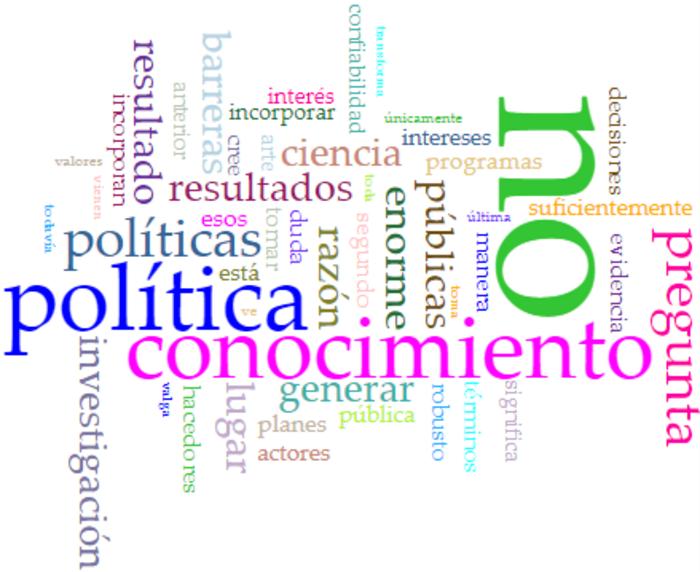A study reveals significant insights into the influence of health education and literacy research on policy-making across Latin America and the Caribbean. Spearheaded by a multidisciplinary team, this research addresses the crucial gap between scientific evidence and its practical application in public health policies.
Health literacy and education are pivotal for shaping effective health policies, yet the integration of research findings into policy-making processes remains a challenge. Prior studies indicate a disconnect between academic research and its practical policy implications, underscoring the need for enhanced communication and collaboration between researchers and policy-makers.
A recent study (DOI: 10.3934/publichealth.2024017) published in AIMS Public Health on March 18, 2024, reveals that the integration of health education research findings into policy documents in Latin America and the Caribbean is significantly influenced by the strength of scientific evidence, the timeliness of dissemination, and social media activity.
The research meticulously combined quantitative data, including altmetric scores and policy document citations, with qualitative insights from interviews with health policymakers in Peru. Through this multifaceted approach, it was discovered that the timing of research dissemination plays a crucial role; studies that were promptly shared with the public and policymakers had a higher chance of influencing health policies. Moreover, the strength and reliability of the research evidence were found to significantly affect its policy impact, with robust findings being more likely to be utilized in policy formation. Interestingly, the study also highlighted the emerging role of social media as a powerful channel for researchers to amplify their findings’ reach and engagement with policymakers. This blend of traditional and modern dissemination methods underscores a paradigm shift in how research influences health policy, pointing towards a more interconnected and responsive future in health policymaking.
Lead researcher Carlos Vílchez-Román emphasized, “Our study not only highlights the importance of timely, strong scientific evidence in informing health policies but also sheds light on the critical role of social media in disseminating research findings to policy-makers.”
This research underscores the critical intersection between scientific research and health policy-making in Latin America and the Caribbean, highlighting the pivotal role of evidence strength, timely dissemination, and social media in bridging the gap. It provides actionable strategies for researchers and policymakers, aiming to improve health outcomes through more informed, effective policy decisions.

Credit: AIMS Public Health
A study reveals significant insights into the influence of health education and literacy research on policy-making across Latin America and the Caribbean. Spearheaded by a multidisciplinary team, this research addresses the crucial gap between scientific evidence and its practical application in public health policies.
Health literacy and education are pivotal for shaping effective health policies, yet the integration of research findings into policy-making processes remains a challenge. Prior studies indicate a disconnect between academic research and its practical policy implications, underscoring the need for enhanced communication and collaboration between researchers and policy-makers.
A recent study (DOI: 10.3934/publichealth.2024017) published in AIMS Public Health on March 18, 2024, reveals that the integration of health education research findings into policy documents in Latin America and the Caribbean is significantly influenced by the strength of scientific evidence, the timeliness of dissemination, and social media activity.
The research meticulously combined quantitative data, including altmetric scores and policy document citations, with qualitative insights from interviews with health policymakers in Peru. Through this multifaceted approach, it was discovered that the timing of research dissemination plays a crucial role; studies that were promptly shared with the public and policymakers had a higher chance of influencing health policies. Moreover, the strength and reliability of the research evidence were found to significantly affect its policy impact, with robust findings being more likely to be utilized in policy formation. Interestingly, the study also highlighted the emerging role of social media as a powerful channel for researchers to amplify their findings’ reach and engagement with policymakers. This blend of traditional and modern dissemination methods underscores a paradigm shift in how research influences health policy, pointing towards a more interconnected and responsive future in health policymaking.
Lead researcher Carlos Vílchez-Román emphasized, “Our study not only highlights the importance of timely, strong scientific evidence in informing health policies but also sheds light on the critical role of social media in disseminating research findings to policy-makers.”
This research underscores the critical intersection between scientific research and health policy-making in Latin America and the Caribbean, highlighting the pivotal role of evidence strength, timely dissemination, and social media in bridging the gap. It provides actionable strategies for researchers and policymakers, aiming to improve health outcomes through more informed, effective policy decisions.
###
References
DOI
10.3934/publichealth.2024017
Original Source URL
https://doi.org/10.3934/publichealth.2024017
Funding information
This study is part of the research project Literacy under Covid-19 in Viñani/Alfabetización en Salud en Viñani (ALSAVI) in Tacna-Peru (https://alsavi.org/ and https://www.mmu.ac.uk/news-and-events/news/story/?id=15815) (accessed 15 February 2024). This project is funded by the Universidad Nacional Jorge Basadre Grohmann, Tacna, Peru, via the Canon Minero aid research program. Funding institution: Universidad Nacional Jorge Basadre Grohmann (UNJBG).
About AIMS Public Health
AIMS Public Health is Open Access and an international quarterly publication devoted to publishing peer-reviewed, high quality, original papers in the field of public health. We publish the following article types: original research articles, reviews, editorials, letters, and conference reports. All published papers will be indexed in Web of Science (ESCI), Scopus and PMC.
Journal
AIMS Public Health
DOI
10.3934/publichealth.2024017
Subject of Research
Not applicable
Article Title
The impact of research on health education/health literacy on policymaking in Latin America and the Caribbean Region
Article Publication Date
18-Mar-2024
COI Statement
The authors declare that they have no competing interests.




